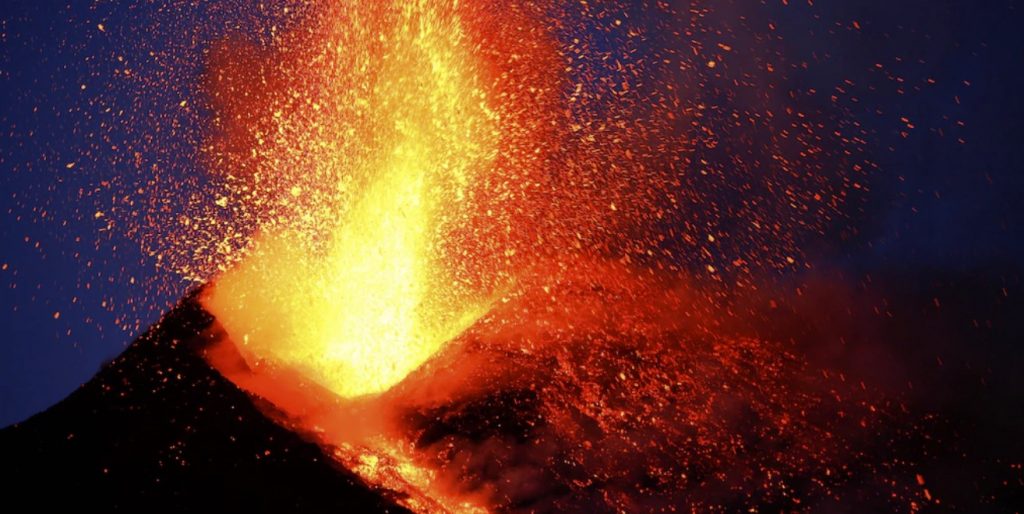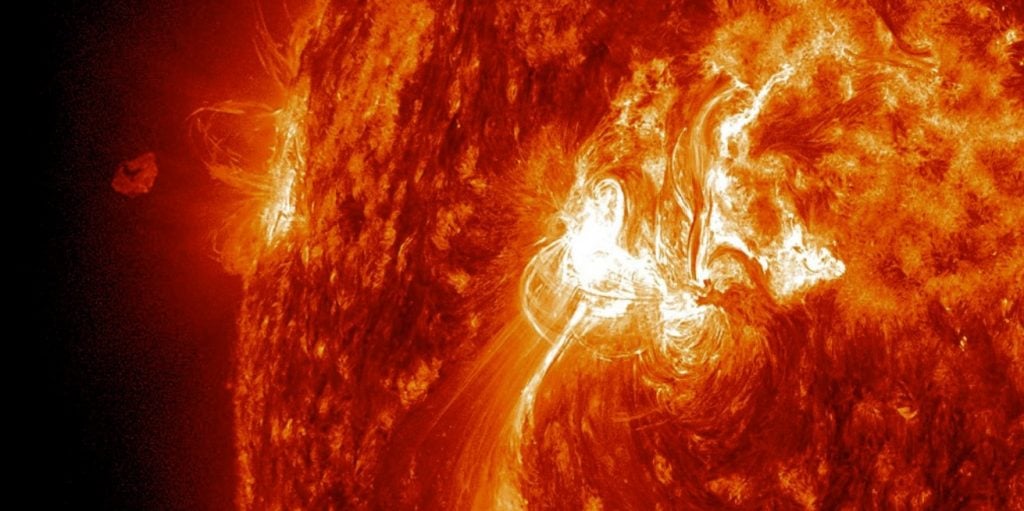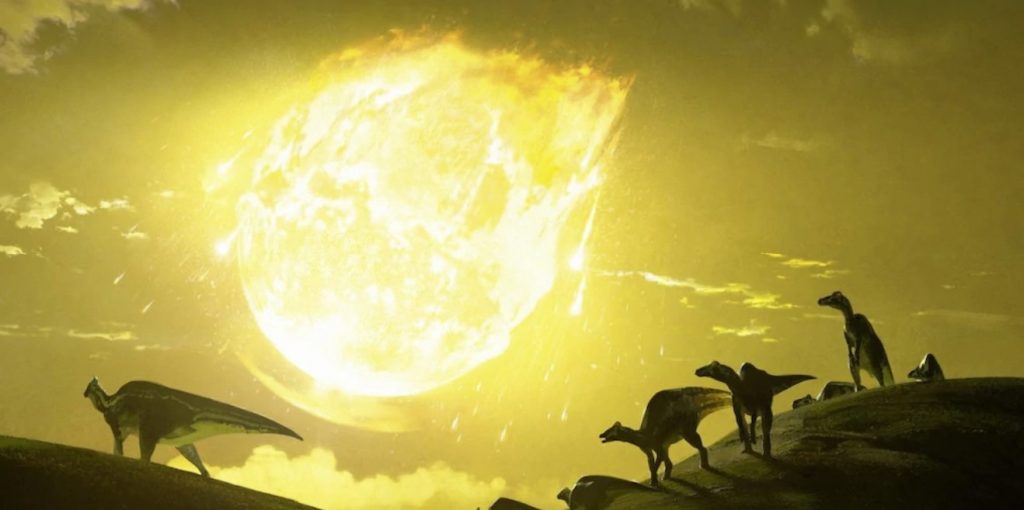COVID-19 has been pretty much the only story in town for global markets and the world economy in 2020…
But Deutsche Bank thinks there is a 33% chance of at least one of four much bigger risks, including a “globally catastrophic” volcanic eruption taking place over the next 10 years.

In an unconventional note Tuesday, the German bank said: “We find there is a one-in-three chance that at least one of four major tail risks will occur within the next decade:
- a major influenza pandemic killing more than 2 million people
- a globally catastrophic volcanic eruption
- a major solar flare
- or a global war.
Deutsche Bank said this assumes a:
- 2% annual probability of a flu pandemic killing 2.2 million people,
- 0.15% chance of a VEI-7 eruption taking place,
- 1.06% chance of a solar flare — which would disrupt global communications,
- 0.625% chance of a global war.
Below are Deutsche Bank’s four possible scenarios, and how they might hurt the global economy:
A bigger pandemic than COVID-19
Deutsche Bank noted that while COVID-19 has had an enormous impact, it has still been less disastrous than other major pandemics such as the Spanish flu in 1918, the Black Death in the 14th century, the Plague of Justinian of the sixth century, and a smallpox outbreak in Japan that began in 735.
Deutsche Bank said: “Before Covid-19 occurred, Madhav et al. (2017) estimated there was an annual probability of 2 per cent that an influenza pandemic will cause 2.2 million pneumonia and influenza deaths or more globally.”
“Given that Covid-19 has led to a severe recessions and lockdowns in numerous countries, an even more serious pandemic could be even more catastrophic.“
A huge volcanic eruption would cause major disruption
The German lender said one of the biggest risks to global stability comes from volcanic eruptions.
“Consider that the relatively remote Eyjafjallajökull volcano in Iceland shut down nearly all of European airspace in 2010, leading to extensive economic disruption.
“And further back in 1991, the eruption of Mount Pinatubo in the Philippines was so large it actually led to a reduction in global temperatures over the subsequent two years.“
“So an important question is what would happen if a much larger, more catastrophic eruption occurred, and how likely is this to happen,” Deutsche Bank said.
The bank’s projections are based on a VEI-7 volcano, which “would cause major disruption on a global scale.“
The last time the earth experienced a VEI-7 eruption was in 1815 in Indonesia, when Mount Tambora erupted. That eruption was so devastating that it reduced global temperatures and led 1816 to be dubbed the “Year without a summer.”
A gigantic solar flare

Deutsche Bank said the the next risk comes “from millions of miles away” — from the sun.
“A severe solar storm can cause substantial and long-standing damage here on Earth.
“A similar event occurring today would be far more disruptive given that modern technology is based on electronics.
“There could be major power outages as electrical power grids are disrupted, which in turn would have knock-on effects throughout the economy as critical infrastructure is unable to be run properly,” the bank noted.
Outbreak of a war or an accident with a nuclear weapon
Deutsche Bank said countries are less likely to go to war than they did in previous decades but nonetheless it still sees this as a risk to global stability.
The bank said it is “more difficult to place a probability on the outbreak of war” as it includes human calculations.
“However, if we made the conservative assumption that the annual probability of a global war is 0.625% (i.e. a 1 in 160 chance each year), then that means there’s a 22 per cent chance that one will take place within the next 40 years,” Deutsche Bank said.
Tensions have flared in recent days between India and China, with some already speculating that the fighting on the two countries’ Himalayan border could be a catalyst for a major conflict.
Biggest risks possibly beyond this lifetime

Deutsche Bank’s research went beyond the decade and possibly even this life-time through a set of extreme “possibilities we’re unlikely to see in our lifetimes.”
“One possible extreme tail risk is a VEI-8 volcanic eruption, which would be much more severe than the VEI-7 cases discussed earlier. One example of this is the eruption of Mount Toba around 75,000 years ago,” Deutsche Bank said.
The bank said another possibility is an asteroid strike which most notably occured around 66 million years ago and led to the mass extinction of dinosaurs and a host of other life on earth.
“While this may seem implausible, smaller instances have happened in recorded history.“
The bank concludes: “Tail risks that can cause these changes are more common than many realise and it is more likely than not that the coming decades will see another with consequences at least as severe as those caused by COVID-19.“
Time will tell… But I am sure ther will be blood! Be prepared or get ready right now! More apocalyptic news on Strange Sounds and Steve Quayle. Now if you are looking for supplements to increase your healthy lifestyle and sexlife please visit Natural Health Source. [Business Insider]












“covid”………….. how about the 100% risk – the global financial system is collapsing right now because of all the money printing , by banks, for greed, over the last 70 years !!!!! ———- that is what is happening – sorry deutsche – we are not all brainwashed sheep
33% chance huh? Masonic code. All four could be false flags. FREQUENCIES can cause eruptions and this was pictured on the cover of Rothschilds economist mag.
Yeah…what does Deutsche Bank know…is the cabal still talking to them?
They are the cabal. This article’s intent appears to be distraction to avoid responsibility for their
own greed and criminal behaviors. Shall we talk about money laundering, who within the bank knew, and whose money was it?
Why are any of them still not in prison? Name it,
The financial Cabal, including, the DC., London, the Vatican,
(Each an sovereign nation),The Fed. and all your local institutions.
No, this bank, and it’s gigantic amount of derivatives outstanding is the reason that the world economy is going to explode….not because of some volcano, or hurricanes , or locusts…so stop diverting the real issue….this bank is systemically the most dangerous institution in the world….get the facts right, instead of blaming everything else for your fraud and malicious behavior…
Or a 99.999999% chance Douchebag Bank will collapse, while using the other “options” as an excuse. The derivatives market will go up like magicians flash paper once this thing gets lit.
https://youtu.be/oHKcob4eD6E
Greenland movie trailer